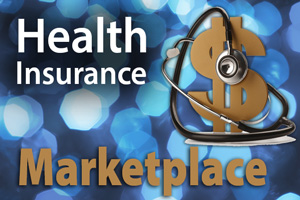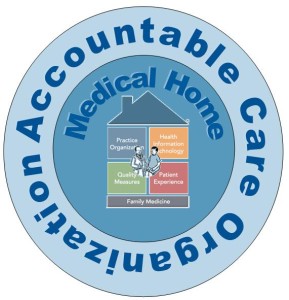10 Facts Healthcare Providers Must Know About Health Insurance Exchanges
 The Centers for Medicare & Medicaid Services has issued a list of 10 facts healthcare providers “need to know” about the online health insurance exchanges, or marketplaces, created by healthcare reform. The publications include the following must-know information:
The Centers for Medicare & Medicaid Services has issued a list of 10 facts healthcare providers “need to know” about the online health insurance exchanges, or marketplaces, created by healthcare reform. The publications include the following must-know information:
- The exchanges are “a new way to shop for health coverage,” and allow customers to compare private insurance plans in terms of cost, quality and benefits.
- Each state will have its own marketplace; some of these will be run by the state, others by the federal government and others by a partnership between the two.
- Open enrollment in the exchanges will last… Continue reading
Medicare Seniors Do Not Need to Shop for Health Insurance
 Starting October 1, 2013, the enrollment period opens for Medicare beneficiaries to buy prescription drug coverage or the Medicare Advantage medical policies that are an alternative to traditional Medicare.
Starting October 1, 2013, the enrollment period opens for Medicare beneficiaries to buy prescription drug coverage or the Medicare Advantage medical policies that are an alternative to traditional Medicare.
Starting January 1, 2014, most Americans will be required to have health insurance or pay a penalty and those without insurance will be able to buy it from the new Internet-based marketplaces, aka health insurance exchanges.
In support of the U.S. Government effort to get the word out, LabFlorida wants to reassure Medicare seniors and all our clients (ALFs, SNFs and home health companies) that Medicare is NOT PART OF HEALTH… Continue reading
Los You Toons Se Preparan para Obamacare
En Español
Antes del inicio del período de inscripción abierta, el 1 de octubre, la Kaiser Family Foundation presenta un video en español para que el público comprenda mejor los cambios que vienen próximamente bajo la Ley de Cuidado de Salud a Bajo Precio (Affordable Care Act o ACA, en inglés). “Los You Toons Se Preparan para Obamacare” explica las nuevas opciones que tendrán los estadounidenses para obtener seguro médico en el año 2014.
English
Before the October 1 start of open enrollment, the Kaiser Family Foundation presents a Spanish-language video as part of its continuing efforts to… Continue reading
Rx For Docs: AMA Answers Obamacare Questions
 As we get closer to 2014, consumers are being surrounded by news coverage, ads and opinions about the health law. And many of them are turning to their doctors for advice. The American Medical Association has a website to help doctors answer frequently asked questions that physicians hear from patients, such as “Why should I care about the health reform law?” (the answer notes that as of Jan. 1, most people will have to have insurance or pay a penalty) and ”Can I keep my own doctor?” (answer: “That depends on the plan you choose… Continue reading
As we get closer to 2014, consumers are being surrounded by news coverage, ads and opinions about the health law. And many of them are turning to their doctors for advice. The American Medical Association has a website to help doctors answer frequently asked questions that physicians hear from patients, such as “Why should I care about the health reform law?” (the answer notes that as of Jan. 1, most people will have to have insurance or pay a penalty) and ”Can I keep my own doctor?” (answer: “That depends on the plan you choose… Continue reading
YouToons Get Ready for Obamacare
2014 is coming–are you ready for Obamacare? Join the YouToons as they walk through the basic changes in the way Americans will get health coverage and what it will cost starting in 2014, when major parts of the Affordable Care Act, also known as “Obamacare,” go into effect.
Written and produced by the Kaiser Family Foundation. Narrated by Charlie Gibson, former anchor of ABC’s World News with Charlie Gibson and a member of the Foundation’s Board of Trustees. Creative production and animation by Free Range Studios.
ACO – the Hottest Three-letter Word in Health Care
 One of the main ways the Affordable Care Act seeks to reduce health care costs is by encouraging doctors, hospitals and other health care providers to form networks to coordinate care better, which could keep costs down.
One of the main ways the Affordable Care Act seeks to reduce health care costs is by encouraging doctors, hospitals and other health care providers to form networks to coordinate care better, which could keep costs down.
To do that, the law is trying a carrot-and-stick approach in the Medicare program: Accountable Care Organizations. ACOs have become one of the most talked about new ideas in Obamacare. Providers get get paid more if they keep their patients well. About four million Medicare beneficiaries are now in an ACO, and, combined with the private sector, more than 428 hospitals have already signed up. An estimated 14 percent of the U.S. population is now being served by an ACO. You may even be in one and not know it.
While ACOs are touted as a way to help fix an inefficient payment system that rewards more, not better, care, some economists warn they could lead to greater consolidation in the health care industry, which could allow some providers to charge more, if they’re the only game in town.

